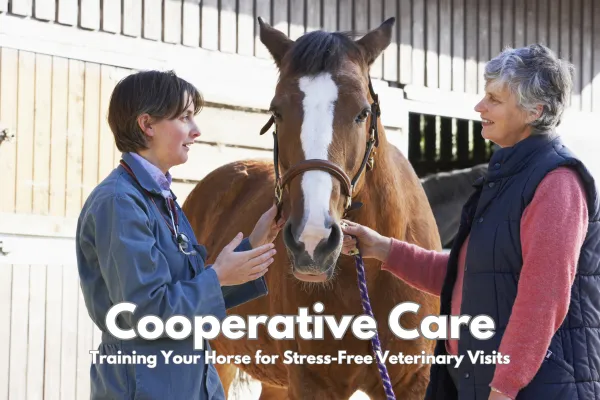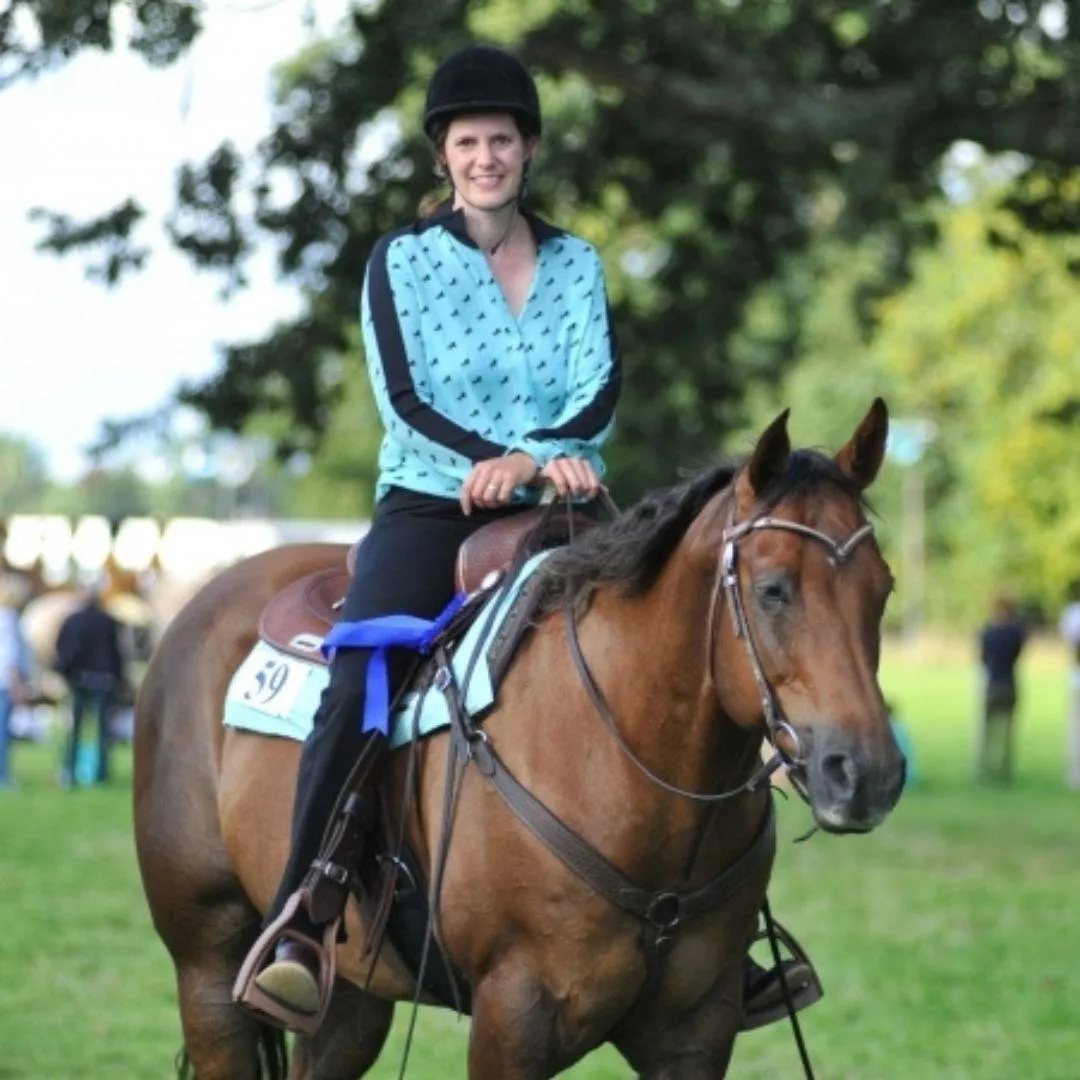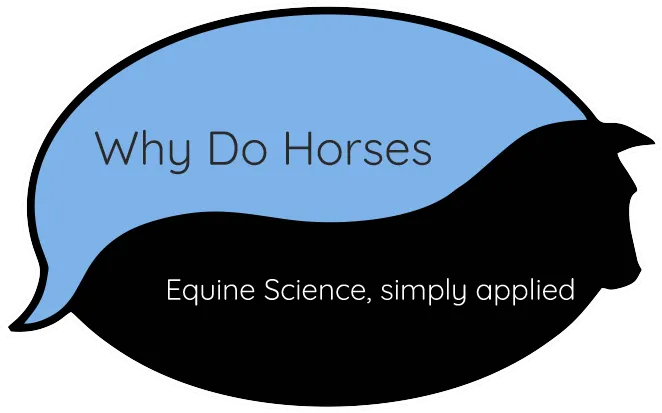Love Reading?
Articles
Find our blog posts and media articles all in one place!

Cooperative Care: Training Your Horse for Stress-Free Veterinary Visits
Do you judder at the thought of a vet visit? Is your horse a nightmare when it comes to injections? Does it take a team of people just to take your horse’s temperature? I don’t need to tell you that horses seem to have a sixth sense when it comes to identifying a vet!
If you can relate to any of the above, chances are you are so ready to hear what I’m about to tell you.
Veterinary visits can be a massive source of stress for both horses and their humans, but it doesn’t have to be like this. With thoughtful training focused on cooperative care, you can turn these potentially stressful experiences into calm, manageable and even positive interactions. In this blog post, I’ll guide you through a step-by-step process to train your horse not just to cooperate during veterinary procedures, but to become a willing partner, ensuring a more relaxed, safer experience for everyone involved.
➡️ Why Cooperative Care Matters
Cooperative care teaches your horse to willingly participate in their own care. Instead of forcing or restraining the horse, you work with them using reward-based training to encourage cooperation. This approach not only reduces stress for the horse but also makes the vet’s job easier and safer and helps build a stronger bond between you and your horse.
Step-by-Step Guide to Training Cooperative Care 💉
1. Start By Building Knowledge and Handling Skills 🐴
Get to Grips With Body Language: Learning to recognise signs of fear, anxiety and stress (FAS) goes a long way to helping your horse feel comfortable with veterinary care.
Build Trust: Before introducing veterinary-specific training, ensure your horse is comfortable with basic handling. Spend time grooming and touching your horse all over their body. This builds trust and establishes a foundation for further training.
Desensitisation: Gradually introduce your horse to different sensations they might encounter during a vet visit, such as the feel of a stethoscope, the pressure of a needle or the sound of clippers. Work at your horse’s pace and watch out for signs of FAS. Take a step back if it becomes too much for your horse.
Rewards: Use rewards to build positive experiences and encourage calm behaviour.
2. Target Training 🔵
Introduce a Target: Teaching your horse to touch a target (like a hand or a target stick) can be hugely useful. Start by holding the target near to them and reward them when they touch it with their nose. This skill can later be used to position your horse during procedures.
Positioning: Once your horse understands targeting, you can use this behaviour to guide them into specific positions, such as standing still or holding their head in a particular way. This is useful for procedures like administering injections or checking vital signs.
3. Training for Specific Procedures 🌡️
Temperature Checks: Train your horse to accept a thermometer by first introducing the sensation of something touching the area around their tail. Gradually work up to inserting a thermometer, rewarding calm behaviour at each step.
Needle Preparation: If your horse is nervous about needles, start by simulating the process. Start from the beginning, simply touching your horse’s body and build up to taking a skin pinch. Use a blunt object like a capped pen to mimic the sensation of a needle on different parts of their body. Reward your horse each time they remain calm.

Mouth and Teeth Exams: Use rewards to teach your horse to accept their mouth being handled. Start by gently lifting their lips, gradually working towards opening their mouth. Reward small successes to build comfort and reduce anxiety during dental exams.
4. Building Duration and Tolerance ⏲️
Extend Time: Gradually increase the amount of time your horse is expected to maintain a position or tolerate a procedure. For example, if your horse is learning to stand still for an injection, start by asking them to remain still for just a few seconds and then gradually increase the duration.
Variable Rewards: As your horse becomes more comfortable, you can vary the frequency of the rewards. This helps to keep the horse engaged in the training process.
5. Introducing Distractions 🥼
Simulate a Vet Visit: As your horse progresses, simulate a full veterinary visit. Have someone else handle the horse while you pretend to be the vet; ask a friend to play the role of a vet or even invite the actual vet to participate in a practice session. Introduce distractions like different people, new environments or additional equipment.
Gradual Exposure: Start with easier, less invasive procedures before moving on to more complex ones. Gradually expose your horse to the full experience of a vet visit, using positive reinforcement to reward calm, cooperative behaviour.
6. Maintain Consistency and Patience 😎
Regular Practice: Consistent practice is key to reinforcing cooperative behaviours. Incorporate cooperative care training into your regular routine, even when no vet visit is planned.
Stay Calm: Your horse will pick up on your emotions, so it’s important to stay calm and patient throughout the training process. Celebrate small victories and understand that building trust and cooperation takes time.
➡️ Conclusion
Introducing cooperative care is a journey that requires consistent effort, but it pays off in reduced stress, safer interactions and a more confident and trusting relationship between you and your horse. By following these steps, you can help your horse become an active participant in their own care, turning veterinary visits into a positive experience for everyone involved.
It’s important to remember that every horse is different. Be patient and adjust your training approach to suit your horse’s individual needs and temperament. With time and dedication, you’ll see the benefits of a more relaxed and cooperative equine partner.
If you'd like to explore cooperative care training in more depth, it's worth finding a qualified trainer who offers this service. As a Fear Free Certified Professional and Certified Equine Training Instructor (ABTC-ATI), I offer in-person training sessions in Berkshire and surrounding counties (UK). For more information, please email me at: [email protected]
Blog Posts Straight to Your Inbox!
What do clients say?

Amy D

We had an intro session on clicker training with Louise, it was fabulous, very informative. After reading up about clicker training and getting a bit confused with all the different approaches, Louise made it very clear and explained it all thoroughly.

Eiddwen S

I contacted Why Do Horses for help with issues I was having travelling my horse. During our sessions I found myself wanting to learn more about equine behaviour and body language and I have realised I was missing a lot of knowledge. Why Do Horses have changed my entire outlook on horse training and behaviour, this is something for which I will be forever grateful!


